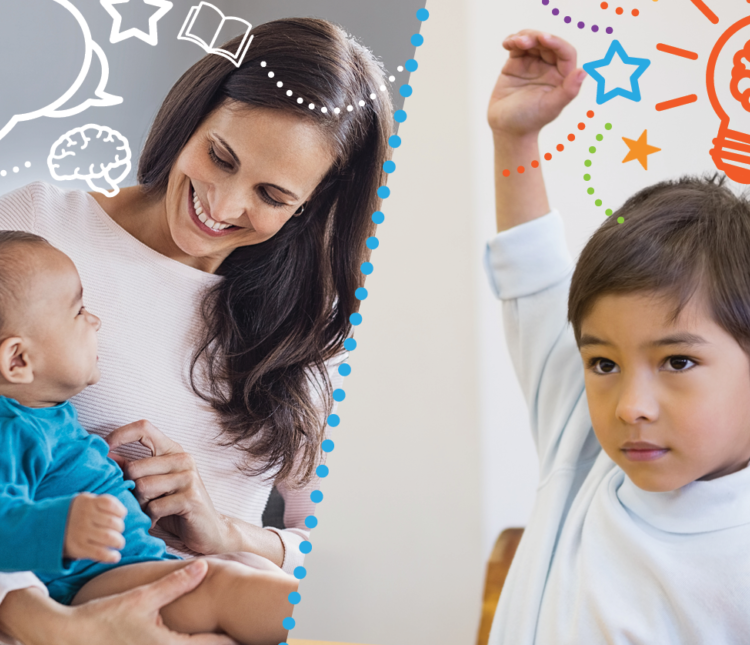Interpersonal intelligence is the ability to understand the emotions and behaviour of others. Interpersonal intelligence in children can be characterized by the ability to express opinions, fit to work in groups, to be good at communicating.
The first used the word interpersonal in psychology in 1938, which refers to behaviour between people.
Interpersonal intelligence describes how proficient an individual is in understanding and interacting with other people.
In children, you can identify it by their ability to manage relationships and find solutions to conflicts.
What is interpersonal intelligence?

In Howard Gardner’s Theory of Multiple Intelligences, interpersonal intelligence is one type of intelligence. In the past, this intelligence classification significantly impacted the world of education. It means it can direct children with specific talents according to their abilities.
The notion of interpersonal intelligence is the ability to understand the emotions and behaviour of others. Additionally, this intelligence signifies communicating effectively with whoever the other person is talking to.
Although Gardner’s theory of interpersonal intelligence is sometimes considered less critical than logical or mathematical intelligence, the quality of life for children with this type of intelligence is usually better.
The characteristics of interpersonal intelligence in children

Parents and teachers need to know how to provide adequate space for developing children with this type of intelligence.
To help you recognize them, here are the traits of interpersonal intelligence observed in children.
1. Good at communicating
The first characteristic of interpersonal intelligence is good at communicating. Children with this intelligence are proficient in sharing in the classroom and other interactive environments.
They also enjoy interacting with other people, including doing activities that require a lot of communication.
2. Can express opinions
The striking characteristic of interpersonal intelligence is being able to express opinions well. When asked to express views, children with this intelligence can communicate them clearly in person and in public.
3. Suitable for working in groups

One of my interpersonal talents is suitable for working in groups. So, if your child seems good at communicating and working in a team, they may have interpersonal intelligence.
Children with this intelligence can significantly contribute when in a group because they can communicate with all their members.
4. Good leader
Children with interpersonal intelligence can become good leaders even from a young age. It is due to their ability to delegate roles and responsibilities to each group member.
They can also manage interpersonal relationships well when there are differences.
5. Be sensitive to other people’s feelings
An example of interpersonal intelligence that parents can see is being sensitive to the feelings of others. Look at how children interact with other children.
Children with interpersonal intelligence are more sensitive to their emotions and situations only through simple interactions. For adults, this could even be a rare ability.
6. Confident
The following characteristic of interpersonal intelligence is self-confidence. Children with this intelligence do not mean that they are brighter than others.
However, they are very confident in using their talents in collaboration and value the knowledge of others, even in large groups.
7. High solidarity
One example of interpersonal intelligence is the high solidarity within the child. Children with interpersonal intelligence can understand what other people are experiencing or have felt. Not only that, but they also really feel happy about the success of others.
This example of interpersonal intelligence can help children care more about the people around them.
8. Good listener
A good listener is also a characteristic of interpersonal intelligence. The solidarity that children with this intelligence have makes them good listeners.
As listeners, they can also become counsellors or provide advice according to their capacity.
9. Make others comfortable
One of the characteristics of interpersonal intelligence in children is making other people around them feel comfortable.
Children with interpersonal intelligence can understand what is being experienced by those around them. It makes many people feel comfortable and want to be around them.
One way to stimulate interpersonal intelligence in children is to provide different activities. Provide emotional experiences that remain in their memories.
Not only that, invite the children to jump right in to add new friends. It can do this through camping, sports, or other social activities that require meeting new people.
This method is considered adequate for understanding other people’s perspectives and learning to communicate.
How to hone children’s interpersonal intelligence

There are several ways to hone or improve interpersonal intelligence in children, including:
1. Participate in community service
One way to improve children’s interpersonal intelligence is to invite them to participate in community service. In addition to being an opportunity for children to help others, this activity can be a place for children to hone their communication skills and concern for others.
Children can participate in many types of community services, such as cleaning the environment, accompanying the elderly in orphanages, or donating new books to hospitals or orphanages for orphans.
2. Asking children to listen actively
Active listening is an essential component of interpersonal intelligence and refers to a child’s ability to listen to perspectives, thoughts, and opinions.
Hone interpersonal intelligence to children is advised to be able to listen to the people around them more actively.
In addition, children are also advised to give a positive response after they finish listening to other people.
3. Practicing empathy
The following way to hone interpersonal intelligence is to practise empathy in the surrounding environment. By empathizing with others, children can better understand the emotions of the people they are communicating with.
In addition, empathy is believed to help children to communicate more efficiently and build interpersonal skills with others, especially when they understand what people around them are feeling.
4. Become an active group member
When children work in a group, please encourage them to participate more actively. One is helping other group members or being more involved in activities.
Being an active group member fulfils the child’s responsibility in the group and shows that the child is concerned for the team’s performance as a whole.
Jobs that are suitable for children with interpersonal intelligence
Children’s interpersonal intelligence is sometimes used as a reference for finding work in the future. They should understand it; children with interpersonal intelligence have many advantages, such as being good at communicating verbally and non-verbally, seeing situations from various perspectives, creating positive relationships with others, and resolving conflicts in groups.
Quoted from Very Well Health, the various advantages of children with interpersonal intelligence make them suitable to pursue the following professions:
- Psychologist
- Philosopher
- Counsellor
- Salesperson (salesperson)
- Politician.
Interpersonal and intrapersonal intelligence, what is the difference?

Although the name is similar, there are striking differences between interpersonal and intrapersonal intelligence.
Interpersonal intelligence is a child’s ability to understand and interact with other people. These characteristics of intelligence can be seen when they can assess the emotions, motivations, desires, and intentions of the people around them.
On the other hand, intrapersonal intelligence is the ability of a person to be aware of the emotional states, feelings, desires, and motivations that exist within them.
Children with intrapersonal intelligence tend to enjoy self-reflection and analysis. They may like to daydream, explore relationships with other people, to assess personal strengths.




